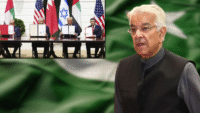Pakistan narrowly escaped being black listed by FATF in June 2019. The message to Pakistan by the organization was, “not only did Pakistan fail to complete its action plan items with January deadlines, it also failed to complete its action plan items due May 2019”. Indian lobbying and accompanying new geopolitical alliances have a lot to do with the pressure on Pakistan.
Geo-politics aside, the limelight cannot be drawn away from Pakistan’s abject failure at devising policies to any area of domestic or international policies.
Though creation of laws in Pakistan may be strong, the implementation continue to lag behind. This is mainly due to lack of real institutional reforms at the core level and failure to invest in human resources. The present strict measures being taken in taxation laws though may yield some increased funds to the government not only create an atmosphere of fear for investors, but has led to increased cost of production, making products noncompetitive in international markets but has also led to loss of jobs and low buying power of the common man. The last two outcomes are dangerous from a purely security point of view. Not only, in due course it will lead to greater mayhem and lawlessness, it will also contribute to many joining banned outfits if only to provide them with enough to put food on their table.
Though Turkey, China and Malaysia bailed out Pakistan this time round (3 out of 37 needed to stop the motion of placing a nation on black list) this cannot continue indefinitely. At best, diplomacy for some time can maintain a status quo but cannot get us off the gray list.
Pakistan has taken strict measures against the banned outfits, like freezing their assets, taking over their operating facilities and even arresting certain members of these proscribed outfits- however, no legal cases have been so far been instituted against them. The progress of investigation and persecution remains extremely slow.
An interesting question here is: can FATF ascertain via primary measures, the degree to which Pakistan has been successful in curtailing terrorism and money laundering? What are the exact parameters and methodology through which it can make a determination? An interesting contradiction is that Global Terrorism Index report in 2017 placed Pakistan on number 5th in terms of the most affected countries from terrorism. Contradicting this is the report by Basel AML Index 2017 by the Basel Institute of Governance in which Pakistan is ranked on 46th position among 146 countries in the world in terms of assessing the risk of money laundering and terrorist financing (2018). It is safe to assume that FATF relies on secondary measure in its assessment.
It will be also interesting to know if Pakistan has been in these plenary sessions been given data and source of the data on basis of which the decision to continue Pakistan on gray list was taken and the pressure to “do more” is placed.
It may also be a worthy endeavor to award the task of addressing this issue to the National Development Council with the Army Chief and Provincial Ministers on board.
Stay tuned to Baaghi TV for more.






